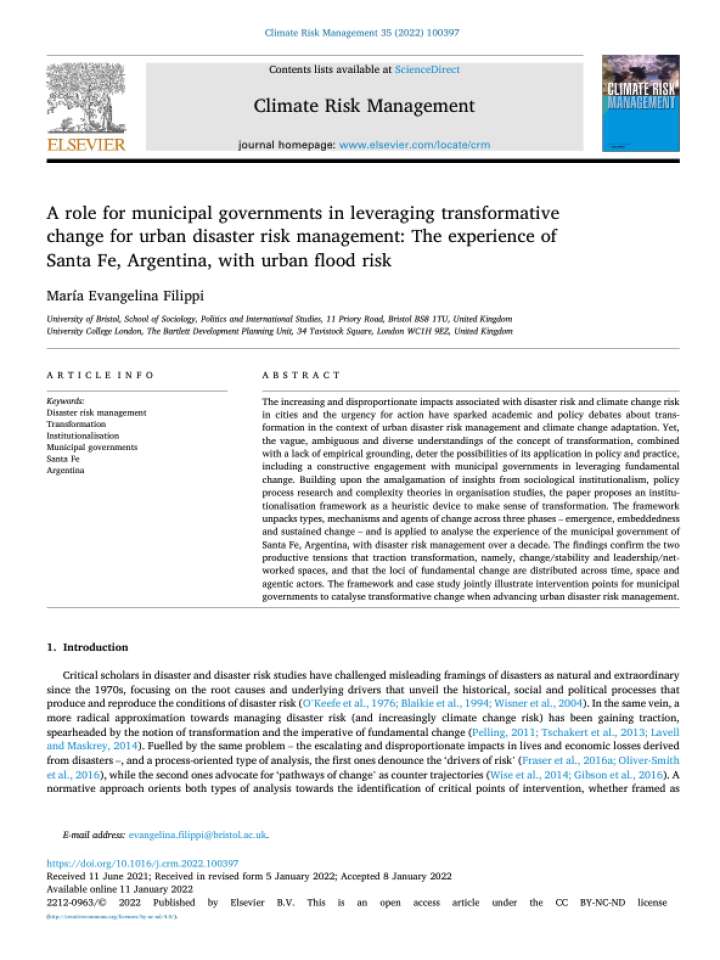A role for municipal governments in leveraging transformative change for urban disaster risk management: The experience of Santa Fe, Argentina, with urban flood risk
The paper proposes an institutionalisation framework as a heuristic device to make sense of transformation, building upon the amalgamation of insights from sociological institutionalism, policy process research and complexity theories in organisation studies. The increasing and disproportionate impacts associated with disaster risk and climate change risk in cities and the urgency for action have sparked academic and policy debates about transformation in the context of urban disaster risk management and climate change adaptation. Yet, the vague, ambiguous and diverse understandings of the concept of transformation, combined with a lack of empirical grounding, deter the possibilities of its application in policy and practice, including a constructive engagement with municipal governments in leveraging fundamental change.
The framework unpacks types, mechanisms and agents of change across three phases – emergence, embeddedness and sustained change – and is applied to analyse the experience of the municipal government of Santa Fe, Argentina, with disaster risk management over a decade. The findings confirm the two productive tensions that traction transformation, namely, change/stability and leadership/networked spaces, and that the loci of fundamental change are distributed across time, space and agentic actors. The framework and case study jointly illustrate intervention points for municipal governments to catalyse transformative change when advancing urban disaster risk management.
Explore further
